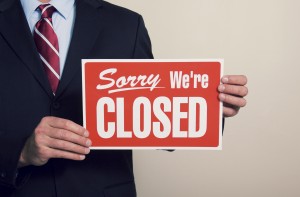
Which law school will it be?
With applicants up 0.7 percent since last year and more students taking the LSAT than in recent years, there seems to be a faint glimmer of hope on the horizon for law schools, many of which have suffered greatly since enrollment’s obliteration — likely caused by the legal media’s exposure of scores of miserable, heavily indebted, unemployed graduates — occurred after the recession.
But is there a light at the end of the tunnel of despair for all law schools?

Transform Legal Reasoning Into Business-Ready Results With General AI
Protégé™ General AI is fundamentally changing how legal professionals use AI in their everyday practice.
David Barnhizer, a professor emeritus at Cleveland-Marshall College of Law, believes that law schools in the Great Lakes and Midwest area are still in trouble. In a new paper, Barnhizer outlines what he thinks may lead to the demise of several Midwestern law schools, writing, “The picture is not pretty in the ‘Rust Belt’ region.”
According to Barnhizer, there are six “critical factors” affecting Rust Belt law schools:
1. The Great Lakes/Midwest region is economically depressed and while it may experience a partial recovery it nonetheless will fall short of recreating the base of manufacturing activity that produced a strong upwardly mobile middle class of the kind that sustains high-level educational activity.
2. The region’s populations are static, aging or declining with the result that the applicant pool for law schools in the geographic area is falling,
3. The region’s lawyer job markets are saturated to the point that there are not a significant number of new jobs being created and the replacement market that depends on the deaths or retirement of lawyers currently in practice is slow moving.
4. Public budgets for local and state governments in the Great Lakes/Midwest region are under significant stress with the result that those institutions represent a largely static or declining employment market for lawyers.
5. A significant number of the region’s “top” law jobs will be “cherry-picked” by graduates of law schools such as Harvard, Yale, Michigan, Ohio State and a few others.
6. The systemic pressures on law schools trying to survive in the depressed applicant market and convince those to whom they extend offers to attend the law school will create a sort of financial “death spiral” in which law schools rely on greatly expanded financial aid packages in an effort to “buy” students, along with staff and faculty reductions since few law schools have a significant endowment “cushion” to buffer the declining financial situation. This creates an incentive to admit marginal students at the lower end of the scale who pay full tuition in order to fund the subsidies and scholarships given to more highly qualified applicants.
Barnhizer continues his assault on law schools in this region of the country, noting that “many of the ‘lesser’ law schools in the Great Lakes/Midwest region are largely left ‘out in the cold’ in relation to being able to attract significant cohorts of well-qualified applicants and students.” With suffering regional schools like Cooley and Valparaiso to choose from, with recent entering first-year student LSAT profiles like 138/141/147 (Cooley) and 142/145/148 (Valpo), Barnhizer’s point here is well taken.

How LexisNexis State Net Uses Gen AI To Tame Gov’t Data
Its new features transform how you can track and analyze the more than 200,000 bills, regulations, and other measures set to be introduced this year.
“Several law schools are likely to simply wither away,” writes Barnhizer, but which ones? Professor Dorothy Brown has nominated Minnesota Law — a top 30 law school, but one that has been experiencing a slew of financial troubles thanks to its enrollment issues.
Which law school do you think is most likely to “wither away”? If you have inside information to share, please email us or text us (646-820-8477).
Competitive Data Trends for Great Lakes and Midwest Law Schools 2012-2015 [SSRN]
The Rust Belt Law School Crisis [WSJ Law Blog]
Law schools in Rust Belt are in a ‘survival of the fittest’ mode, law prof asserts [ABA Journal]